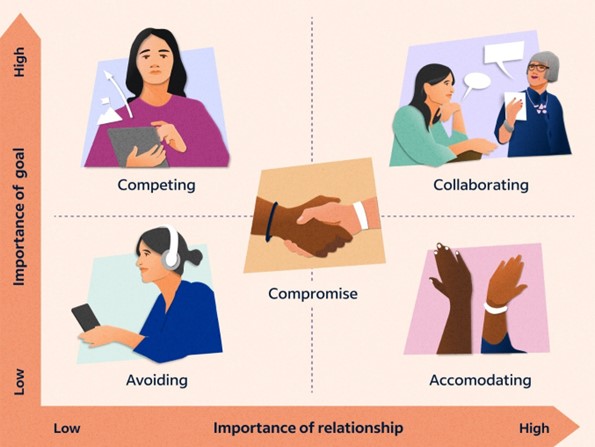A nurse is caring for a group of clients on a medical-surgical unit. Which of the following actions jeopardize client confidentiality? (Select all that apply.)
Removing client information from fax machines immediately.
Discussing clients at the table in the cafeteria.
Disposing of written report sheets into the facility trash receptacle.
Giving verbal reports at the change of shift in a designated conference room.
Correct Answer : B,C,E
Discussing clients at the table in the cafeteria [b], disposing of written report sheets into the facility trash receptacle [c], and sharing a personal password with a coworker [e] are all actions that jeopardize client confidentiality. Client information should be kept private and secure at all times. Discussing clients in public places or disposing of client information in an unsecured manner can result in unauthorized access to confidential information. Sharing personal passwords can also compromise the security of client information.
The other options do not jeopardize client confidentiality. Removing client information from fax machines immediately [a] helps to prevent unauthorized access to confidential information. Giving verbal reports at change of shift in a designated conference room [d] is a standard practice that allows for the secure transfer of client information between healthcare providers.
Nursing Test Bank
Naxlex Comprehensive Predictor Exams
Related Questions
Correct Answer is B
Explanation
In this situation, the nurse is demonstrating the compromising style of conflict management. Compromising involves finding a middle ground where both parties give up something in order to reach a mutually acceptable solution. In this case, the nurse suggests that one AP can take a break now, but the other AP will get to take an early lunch. This solution allows both APs to have some of their needs met while also making concessions.
The other options are not the type of conflict management demonstrated by the nurse in this situation. Cooperating [a] involves one party giving in to the demands of the other party in order to maintain harmony. Competing [c] involves one party trying to win at the expense of the other party. Avoiding [d] involves avoiding or withdrawing from the conflict altogether.

Correct Answer is C
Explanation
The correct answer is choice C. The nurse does not cause any harm to the client.
Choice A rationale:
While having a license to practice nursing in the state where the event occurred is important for professional practice, it is not a specific requirement for the Good Samaritan law to provide civil immunity.The Good Samaritan law generally protects individuals who provide emergency care in good faith, regardless of their licensure status in that particular state.
Choice B rationale:
Basic life support (BLS) certification is a valuable credential for performing CPR and other emergency procedures. However, the Good Samaritan law does not require the responder to have BLS certification to be protected.The law focuses more on the intent and actions of the responder rather than their specific certifications.
Choice C rationale:
The primary criterion for the Good Samaritan law to provide civil immunity is that the responder does not cause harm to the client.The law is designed to protect those who act in good faith to provide emergency care without gross negligence or willful misconduct. If the nurse’s actions are reasonable and do not result in harm, they are typically protected under the Good Samaritan law.
Choice D rationale:
Remaining with the client when traveling to the hospital in an ambulance is not a requirement for Good Samaritan law protection. The law applies to the immediate emergency care provided at the scene.Once professional medical personnel take over, the Good Samaritan law’s protection generally ends.
Whether you are a student looking to ace your exams or a practicing nurse seeking to enhance your expertise , our nursing education contents will empower you with the confidence and competence to make a difference in the lives of patients and become a respected leader in the healthcare field.
Visit Naxlex, invest in your future and unlock endless possibilities with our unparalleled nursing education contents today
Report Wrong Answer on the Current Question
Do you disagree with the answer? If yes, what is your expected answer? Explain.
Kindly be descriptive with the issue you are facing.
